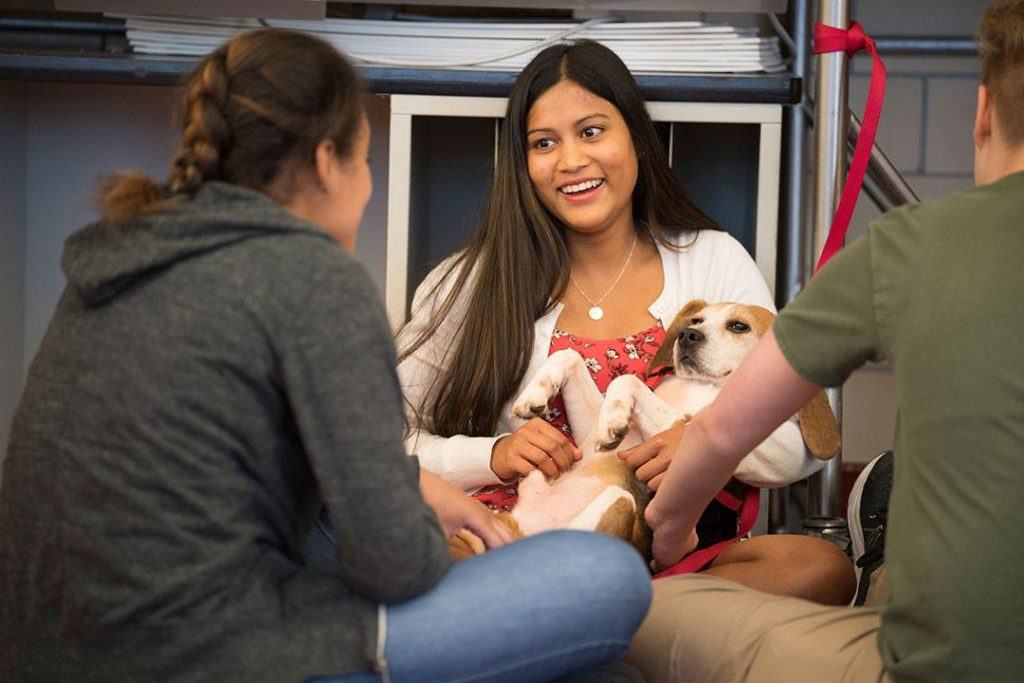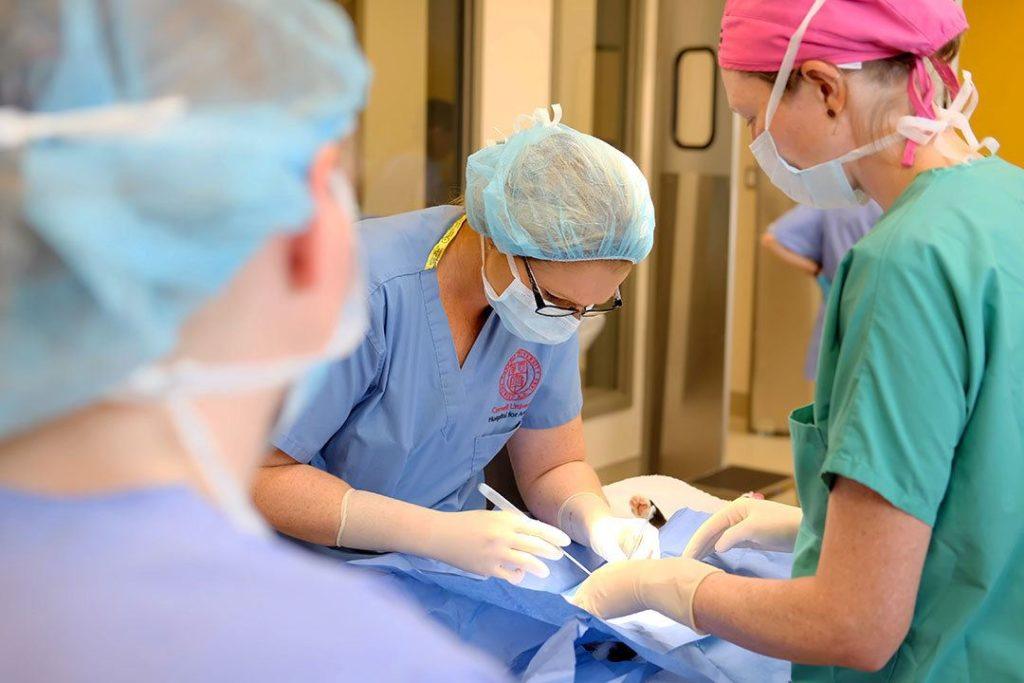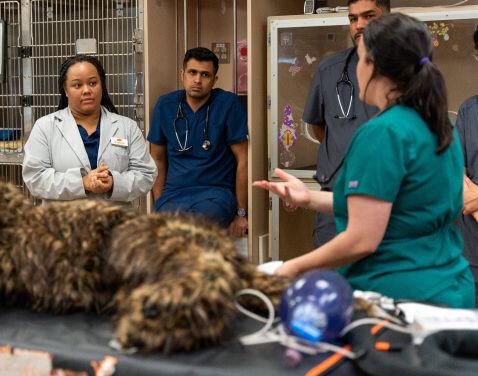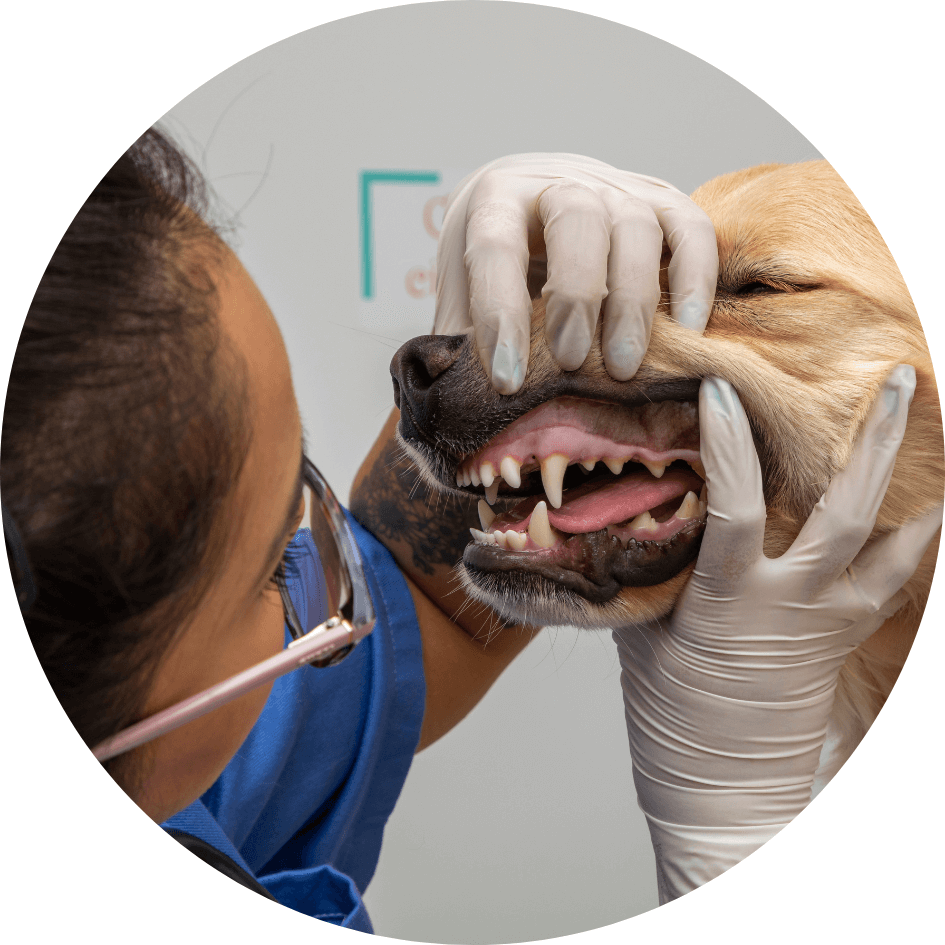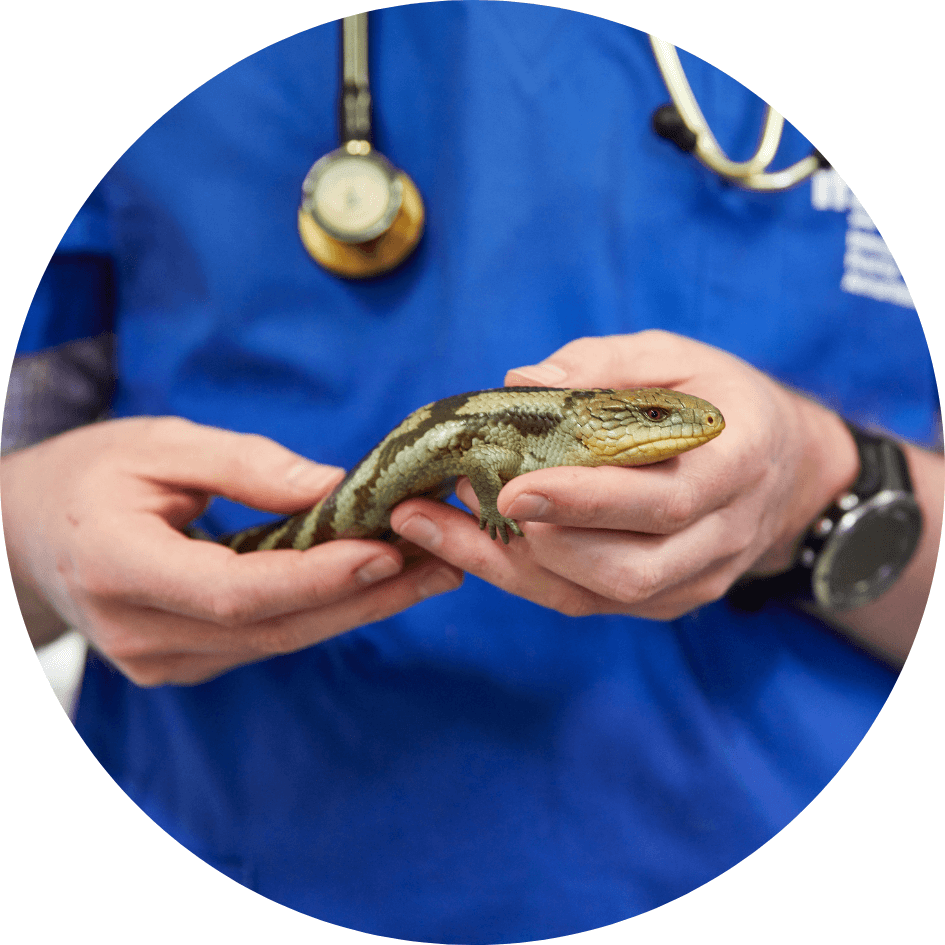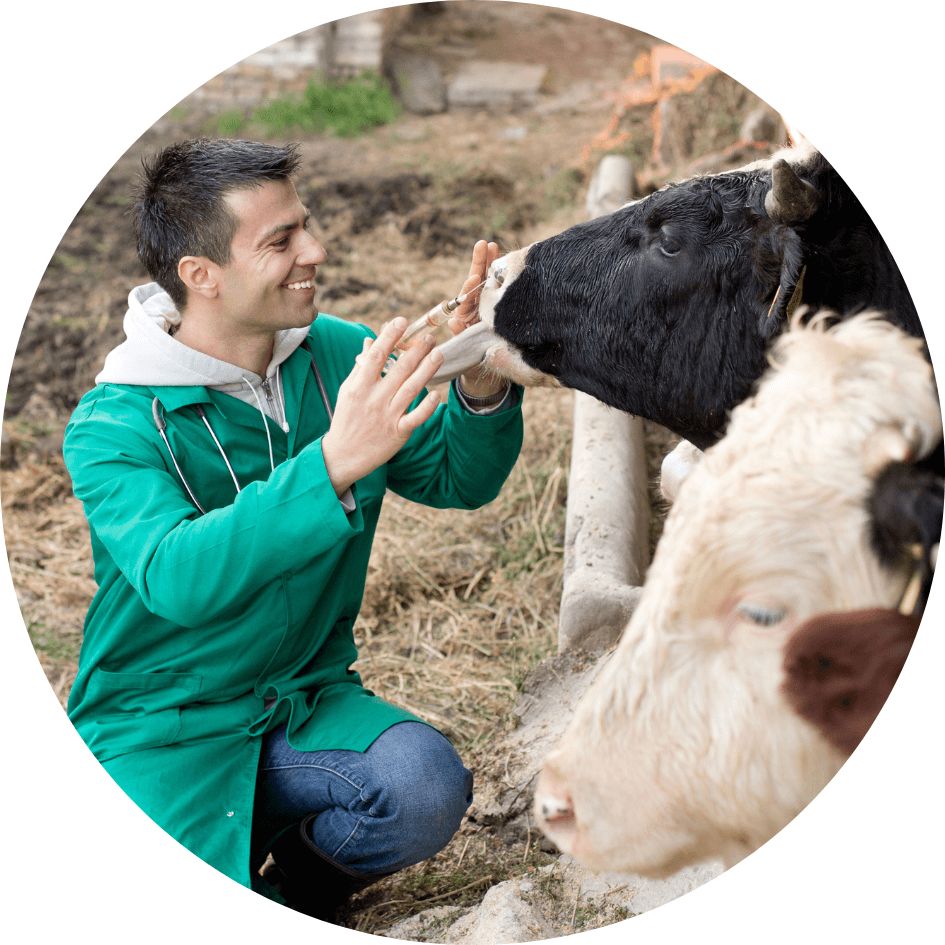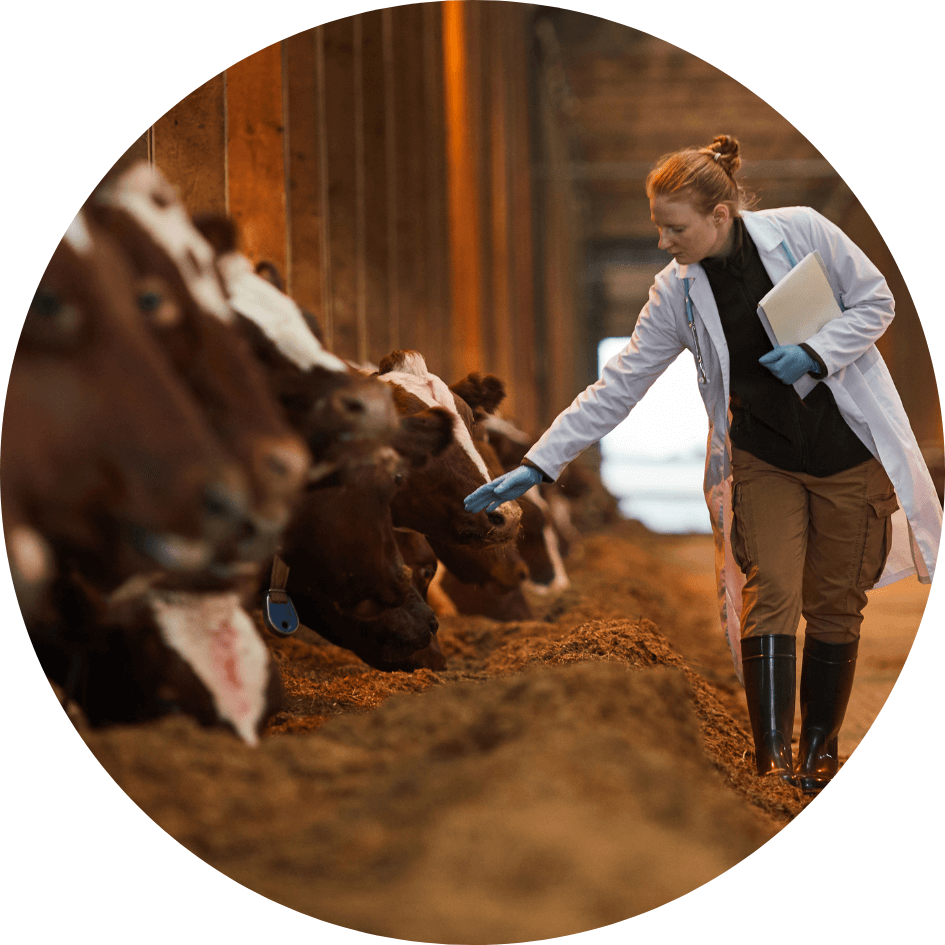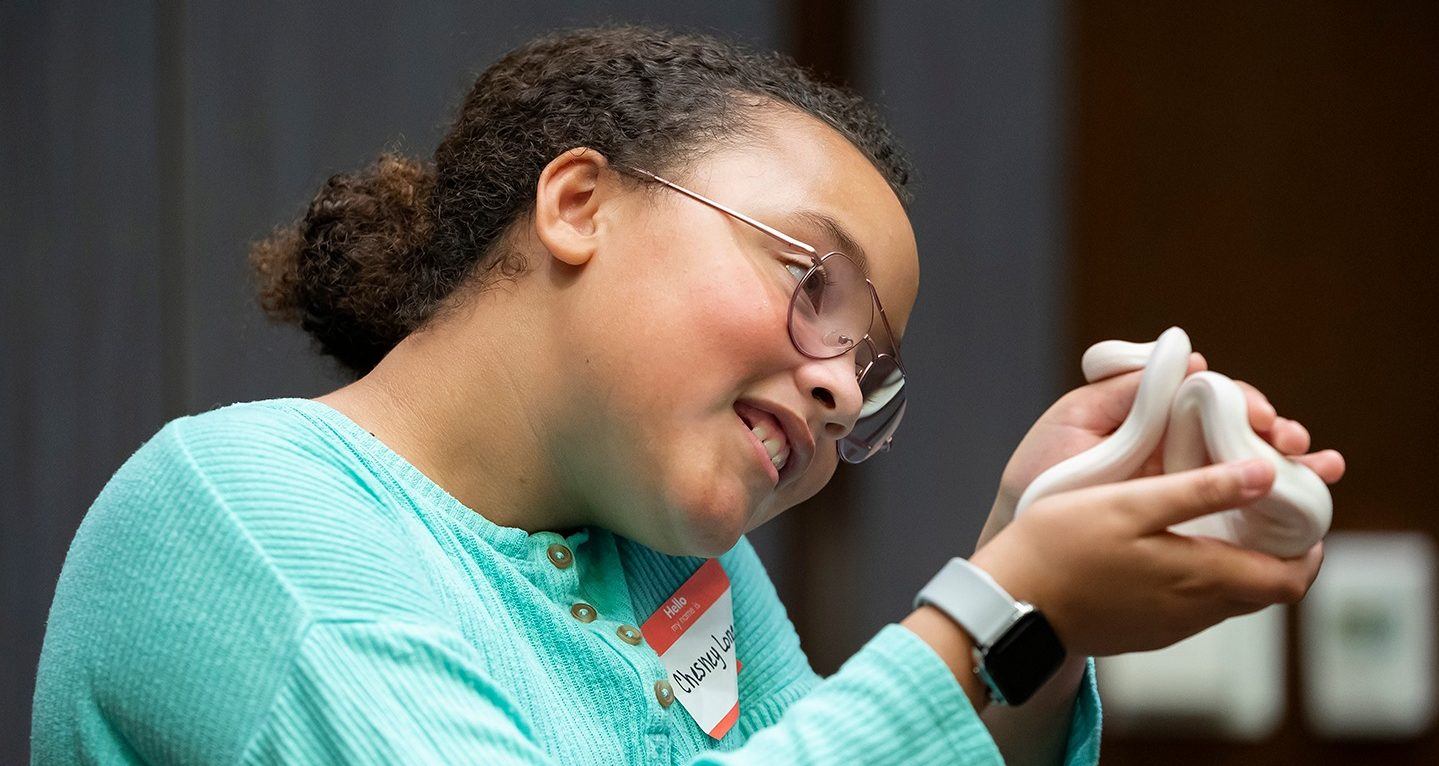


Middle School Students
If you love animals and dream of a career where you can make a difference in their lives, becoming a veterinarian might be the perfect path for you! Veterinarians are animal doctors, and they take care of pets, farm animals, and even wild creatures. You’ll learn about animal anatomy, medicine, and surgery, and get to help furry friends when they’re sick or injured. It’s a rewarding and exciting career that allows you to combine your love for animals with your passion for science and helping others!
Vet Facts
Popular Pets
Did you know that cats and dogs are the most popular pets around the world? These furry companions have captured the hearts of millions of people. While cats are known for their independence and playful nature, dogs are famous for their loyalty and companionship. Whether it's a purring kitty or a wagging tail, these beloved pets bring joy, love, and laughter to countless households. So, whether you're a cat person, a dog person, or love them both, you're part of a global community that adores these wonderful creatures!
Veterinary Offices
Veterinary offices are fascinating places where animals receive top-notch care and attention! These special places are like hospitals for pets, where skilled veterinarians and their caring teams work together to keep our furry friends healthy and happy. In the examination rooms, you'll find cool equipment like stethoscopes, thermometers, and even X-ray machines to help diagnose what's bothering the animals. Whether it's a routine check-up or a paw-some adventure to fix a little boo-boo, veterinary offices are places filled with love and care for all our beloved animal companions!
Flying Pets
Birds are incredible creatures that soar through the sky with grace and beauty! They come in all shapes, sizes, and colors, from tiny hummingbirds to majestic eagles. Birds have unique features, like beaks and feathers, perfectly adapted to their environments and diets. Some birds are excellent singers, filling the air with melodious tunes. Because of their intelligence and social nature, some people choose birds as pets. Birds need a safe and spacious cage with plenty of toys and perches to keep them happy and entertained. Proper nutrition, like seeds, pellets, fruits, and vegetables, is crucial for their well-being. However, it's essential to research the specific needs of the bird species, as each type of bird requires unique care.
Veterinary Teachers
Teachers at veterinary colleges are like animal experts and guides rolled into one! These incredible educators are passionate about animals and love sharing their knowledge with aspiring veterinarians. They have studied for many years to become experts in animal health and care. At veterinary colleges, they teach students everything they need to know about taking care of animals, from diagnosing illnesses to performing surgeries. They use fun and interactive methods to help students learn, like hands-on activities and simulations. Thanks to these dedicated teachers, future veterinarians can learn the skills and information they need to make a positive impact on the lives of animals.
Exploring VetMed
What type of education do I need to become a veterinarian?
Your education journey can start now!
To become a veterinarian, you will need to get a good education that focuses on animals and their health. This means you should start by studying hard in school and getting good grades in subjects like science, especially biology. In middle school and high school, you can take classes that teach you about animals, their bodies, and how they work. It’s also a good idea to volunteer at an animal shelter or a veterinary clinic to get hands-on experience with different kinds of animals.
After high school, you will need to go to college to continue your education. Most veterinarians have to complete a four-year bachelor’s degree in a field like biology, animal science, or pre-veterinary studies. During college, you will take more advanced science classes that focus on animal biology, chemistry, and anatomy. It’s important to do well in these classes because they will help prepare you for veterinary school. After completing your bachelor’s degree, you will need to go to veterinary school, which usually takes four years. In veterinary school, you will learn about all kinds of animals, their diseases, and how to diagnose and treat them. You will also get to do practical work with animals under the supervision of experienced veterinarians. After finishing veterinary school, you will need to pass a licensing exam to become a licensed veterinarian and start your career helping animals.
Is being good at math necessary to be a veterinarian?
Not necessarily. But a love for animals is a must!
Being good at math is helpful for a veterinarian, but it is not the most important skill. Veterinarians do need some math skills to calculate proper dosages of medicine for animals, measure and mix ingredients for treatments, and analyze laboratory test results. They also use math to understand and interpret data about animal health. For example, they might look at charts and graphs to see how certain diseases are spreading or to track the growth of animals over time. So, having a basic understanding of math and being able to use numbers is important for a veterinarian.
However, being good at math doesn’t mean you can’t be a veterinarian if you struggle with numbers. Veterinary medicine is a broad field, and there are many different areas where a veterinarian can specialize. If math is challenging for you, you can focus on areas of veterinary medicine that require less math, such as animal behavior, rehabilitation, or preventive care. It’s more important to have a strong interest in animals, a love for learning about their health, and the ability to communicate and connect with both animals and their owners. With hard work, dedication, and a passion for animals, you can become a successful veterinarian, even if math is not your strongest subject.
How long does it take to become a veterinarian?
It takes dedication, but you're well on your way!
Becoming a veterinarian takes a lot of time and dedication. It typically takes about 8 years of schooling after high school to become a veterinarian. First, you will need to complete a four-year bachelor’s degree in a field like biology, animal science, or pre-veterinary studies. During this time, you will take classes that focus on animals and their health. After finishing your bachelor’s degree, you will need to attend veterinary school, which usually takes another four years. In veterinary school, you will learn about different kinds of animals, their diseases, and how to care for them. You will also get hands-on experience working with animals under the guidance of experienced veterinarians. After completing veterinary school, you will need to pass a licensing exam to become a licensed veterinarian.
Overall, becoming a veterinarian is a long journey that requires a lot of hard work and dedication. It’s important to be prepared for many years of studying and learning about animals. However, if you have a strong passion for animals and their well-being, all the effort will be worth it in the end.
Am I too young to start training to become a veterinarian?
Absolutely not! You can start today!
Middle school can be a great time to start exploring your interest in becoming a veterinarian. While you may not be able to start formal training at such a young age, you can begin laying the foundation for a future career with animals. You can take advantage of opportunities to volunteer at local animal shelters, participate in animal-related clubs or activities, and even shadow a veterinarian to observe their work. These experiences will help you gain valuable knowledge about animals and the field of veterinary medicine.
Starting early allows you to develop a deep understanding and passion for animals, as well as gain practical experience that will benefit you in the future. While you may not be able to perform complex medical procedures or make diagnoses at this stage, you can learn about different animal species, their behavior, and their basic needs. Building a strong foundation in science and math during middle school will also prepare you for more advanced studies in high school and college. Remember, becoming a veterinarian requires many years of education and training, so starting to explore your interest in middle school can give you a head start on your journey towards a fulfilling career with animals.
What kind of jobs can veterinarians do?
Lots!
Veterinarians have a variety of job options where they can use their skills and knowledge to help animals. One common job for veterinarians is to work in a veterinary clinic or hospital. In these settings, they provide medical care to animals, such as dogs, cats, and small mammals. They diagnose and treat illnesses, perform surgeries, and give vaccinations. Veterinarians can also work with farm animals like cows, horses, and pigs. They might visit farms to provide check-ups, give vaccinations, and treat any health issues. Some veterinarians specialize in exotic animals and work in zoos, aquariums, or wildlife rehabilitation centers, where they care for animals like lions, elephants, dolphins, or injured wild animals. They ensure these animals are healthy and help them recover from injuries or illnesses.
Besides working directly with animals, veterinarians can also pursue careers in research. They might work in laboratories, studying diseases or developing new treatments to improve animal health. Veterinarians can also become teachers and professors, educating future veterinarians and conducting research at veterinary colleges or universities. Another option is working in public health, where veterinarians focus on preventing the spread of diseases between animals and humans. They might work for government agencies, inspecting food or monitoring the health of livestock to ensure it’s safe for consumption. With so many possibilities, veterinarians have diverse career paths that allow them to make a positive impact on the lives of animals and the health of our communities.
The following list provides an overview of careers where graduates of veterinary medical schools can effectively apply their degrees.
- Consulting
- Corporate veterinary medicine
- Diagnostic Laboratories
- Federal government
- Food supply medicine
- Global veterinary medicine
- Private practice
- Public health
- Public policy
- Research
- Shelter medicine
- Teaching
- U.S. Air Force
- U.S. Army
What type of education do I need to become a veterinarian?
It starts with your love of animals!
To become a veterinarian, you will need to get a good education that focuses on animals and their health. It’s important to study hard in school and do well in subjects like science, especially biology. In middle school and high school, you can take classes that teach you about animals, their bodies, and how they work. Volunteering at an animal shelter or a veterinary clinic can also give you hands-on experience with different kinds of animals.
After high school, you will need to go to college to continue your education. Most veterinarians complete a four-year bachelor’s degree in a field like biology, animal science, or pre-veterinary studies. During college, you will take more advanced science classes that focus on animal biology, chemistry, and anatomy. These classes will help prepare you for veterinary school. After completing your bachelor’s degree, you will need to go to veterinary school, which usually takes four years. In veterinary school, you will learn about animals, their diseases, and how to diagnose and treat them. You will also gain practical experience working with animals under the supervision of experienced veterinarians. After finishing veterinary school, you will need to pass a licensing exam to become a licensed veterinarian and start your career helping animals.


